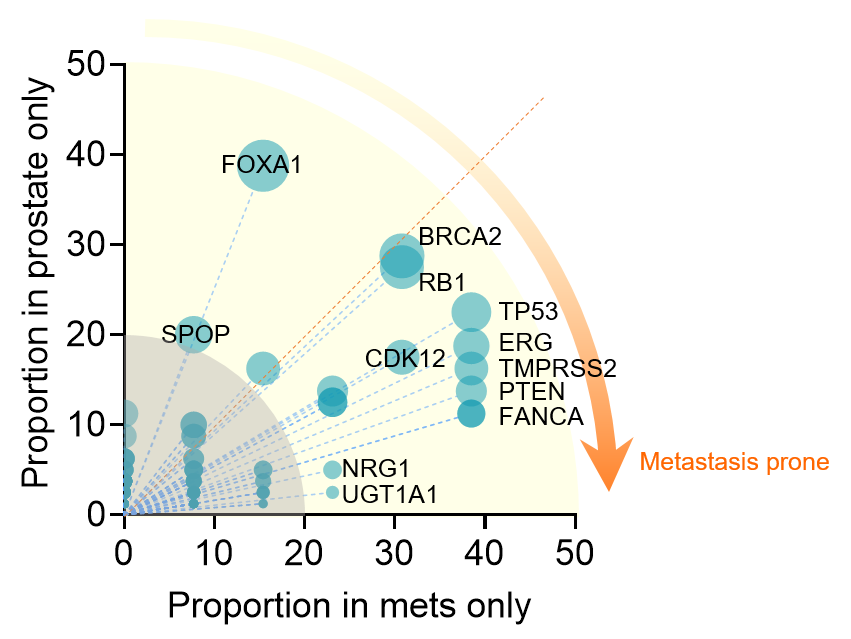Back
Poster, Podium & Video Sessions
Podium
PD46: Prostate Cancer: Basic Research & Pathophysiology II
PD46-03: Metastasis prone genes in prostate cancer revealed by targeted sequencing
Sunday, May 15, 2022
1:20 PM – 1:30 PM
Location: Room 255
Seung-hwan Jeong*, Jang Hee Han, Hyeong-Dong Yuk, Chang-Wook Jeong, Hyeon-Hoe Kim, Ja-Hyeon Ku, Cheol Kwak, Seoul, Korea, Republic of
- SJ
Podium Presenter(s)
Introduction: Tremendous information acquired by NGS improved oncogenomics to defining cancer-related genes including oncogenes and tumor suppressor genes facilitating detailed diagnosis, enhanced anticipation of the prognosis, and precision medicine for each patient. In Seoul National University Hospital, targeted sequencing was designed to be suitable for multiple cancers, named FIRST-cancer panel version 3.2.2. In most cases, sequenced samples were prostates which were obtained from radical prostatectomy. However, in several patients, sequenced tissues were obtained from metastatic site. Notably, we found that there are significant differences of genetic aberrations shared in prostate and metastatic sites which inspire the genetic drive required on metastasis to be targeted for the further treatments.
Methods: Targeted sequencing data were obtained from 93 prostate cancer patients. Tissue origins of each cases were identified and classified into two groups, prostate or metastatic sites. The pooled data in each group was analysed using OncoPrint through cBioportal. Genetic aberrations were comparatively analysed to find significant genes representing each groups.
Results: In total of 93 patients underwent targeted-sequencing using FIRST-cancer panel version 3.2.2, 80 cases of NGS were perform on the samples from prostate (Primary group) and 13 cases were from distant metastasis site (Mets group). To visualize diverse genetic aberration, OncoPrint was drawn through cBioPortal. The genes were displayed in descending order of mutation frequencies in the two groups.
In Primary group FOXA1, RB1, BRCA2, TP53, and SPOP were top 5 genes which were altered most frequently. However in Mets group FANCA, TMPRSS, ERG, TP53, and PTEN were top 5 genes of most altered. In the proportional analysis of each groups, contributing genes for metastasis were identified as UGT1A1, NRG1, and FANCA. When survival analysis were conducted on TCGA data, UGT1A1 or NRG1 mutated patients showed poor overall survival.
Conclusions: Primary and metastatic prostate cancers contain differently shared genetic aberrations. In metastatic prostate cancer, UGT1A1 , NRG1, and FANCA were distinctively mutated compared with primary prostate cancer, suggesting promising target for metastatic prostate cancer therapy.
Source of Funding: This research was supported by a Basic Science Research Program through National Research Foundation of Korea (NRF), funded by the Ministry of Education (NRF-2018R1D1A1B07041191) and by Seoul National University Hospital (0320210060).

Methods: Targeted sequencing data were obtained from 93 prostate cancer patients. Tissue origins of each cases were identified and classified into two groups, prostate or metastatic sites. The pooled data in each group was analysed using OncoPrint through cBioportal. Genetic aberrations were comparatively analysed to find significant genes representing each groups.
Results: In total of 93 patients underwent targeted-sequencing using FIRST-cancer panel version 3.2.2, 80 cases of NGS were perform on the samples from prostate (Primary group) and 13 cases were from distant metastasis site (Mets group). To visualize diverse genetic aberration, OncoPrint was drawn through cBioPortal. The genes were displayed in descending order of mutation frequencies in the two groups.
In Primary group FOXA1, RB1, BRCA2, TP53, and SPOP were top 5 genes which were altered most frequently. However in Mets group FANCA, TMPRSS, ERG, TP53, and PTEN were top 5 genes of most altered. In the proportional analysis of each groups, contributing genes for metastasis were identified as UGT1A1, NRG1, and FANCA. When survival analysis were conducted on TCGA data, UGT1A1 or NRG1 mutated patients showed poor overall survival.
Conclusions: Primary and metastatic prostate cancers contain differently shared genetic aberrations. In metastatic prostate cancer, UGT1A1 , NRG1, and FANCA were distinctively mutated compared with primary prostate cancer, suggesting promising target for metastatic prostate cancer therapy.
Source of Funding: This research was supported by a Basic Science Research Program through National Research Foundation of Korea (NRF), funded by the Ministry of Education (NRF-2018R1D1A1B07041191) and by Seoul National University Hospital (0320210060).


.jpg)
.jpg)